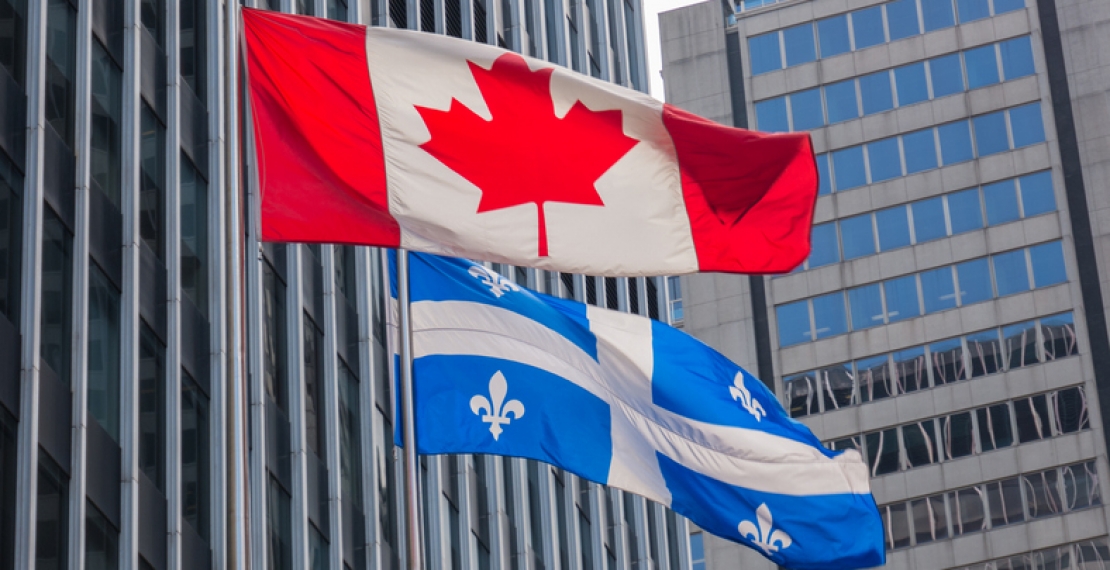English “Canadian-isms” to Watch for While Completing Professional Language Training in English

Newcomers to Canada may have already come across various “Canadian-isms,” English terms that are uniquely spoken and used in Canada or by Canadians. These terms may be intimidating at first, but studying them and discovering how they’re used can help you feel confident—allowing you to sound more fluent during your time here.
Canadian English is typically a mix of British and American English, based on the history of the country as well as its location. As a result, you will encounter many words that use the UK spelling (like colour instead of color) as well as vocabulary that is more common in the US (such as cookie instead of biscuit). Added to this mix, you will often hear “Canadian-isms,” making Canadian English an interesting dialect for English learners.
Read on to discover our list of top “Canadian-isms” you’ll likely hear as you study and work in Canada!
Common “Canadian-isms” You Will Likely Encounter in Canada
One of the most popular terms used in Canada is the two-letter word “Eh.” This one is often added to the end of a sentence to turn it into a question, show surprise, or even say hello to someone farther away. It has many uses and can be compared to the words “huh” or “right,” which are used in the United States.
Another set of common terms is “loonies and toonies.” Loonies are used to describe a Canadian $1 coin, which shows the image of the loon—a Canadian bird. On the other hand, a “toonie” refers to the Canadian $2 coin, getting its name from the number “two” and the word “loonie.”
While taking your language courses in Canada, you may hear the word “Click” (or Klick) used for the first time as a unit of measurement. Here, clicks are not part of a new system. Instead, they are used to refer to kilometers in Canada. These terms are considered Canadian slang, and will often be used in casual settings. However, you are still likely to hear them used in your day-to-day interactions.

Canadian Terms for Describing Places and Specific Actions
Canadians sometimes use different words to describe certain places. For example, instead of using the term “gas station,” Canadians may say “gasbar” instead. This is used to refer to the place that sells fuel for motor vehicles. Similarly, the term “firehall” may be used instead of “fire station,” which refers to where firefighters work. Canadians may also call a multi-level parking structure a “parkade,” which is known more commonly as a parking garage in the United States, and a bathroom or restroom a “washroom.”
If you’re preparing to spend the winter in Canada, you will likely hear about “Snowbirds.” Snowbirds are Canadians who usually travel south to avoid the cold winters, returning once the weather becomes warmer. Learning these terms can help you better understand and adapt to Canadian culture and way of speaking.

Canadian Terms You Can Use During Your Professional Language Training
When it comes to describing performance at work or school, Canadians may use the term “keener.” You may come across this word during your professional language training, and it refers to a person who tries very hard to please others and do well, often appearing overly eager or enthusiastic.
Over in the western coast, Canadians may use the word “hooped” to describe a bad situation that they are in—one that is especially hard to overcome. Another good word to know is “kerfuffle,” which usually is used to refer to a big commotion or disturbance caused by a disagreement. It is often used casually, and may come up in the context of sports.
Learning “Canadian-isms” and Canadian English slang is a great way to improve your language skills and become more fluent. As you continue learning or working in Canada, you may even find yourself using some of these terms yourself!
Are you interested in attending a language school in Montreal?
Contact POINT3 for more information!


